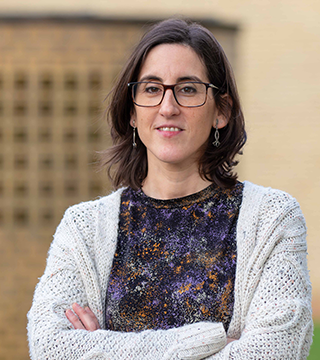
“I have long been fascinated by how cancer cells can shift their metabolism and scavenge nutrients to survive even in the harshest conditions”
Research in new metabolic therapies for pancreatic cancer
How do pancreatic cancer cells feed, and can we utilize vulnerabilities in their nutrient reliance for new therapeutic strategies? This is the fundamental research question of Tenure Track Assistant Professor Naiara Santana Codina, born 1983, who does basic research in the field of pancreatic cancer and the use of metabolic inhibitors to impact cancer cells.
Treating pancreatic cancer is particularly challenging. With one of the lowest cancer survival rates, the lack of efficient therapies available makes finding new treatments vital. One of the biggest challenges being its resistance to conventional therapies.
“Our strategy is to prioritize already approved drugs that we can repurpose as anticancer agents as an effective way to get new treatments to patients as fast as possible. Therefore, an important goal in our lab is to design drug combinations that can overcome resistance to chemotherapy or metabolic inhibition,” says Naiara Santana Codina. Her studies in metabolic therapies for pancreatic cancer have interesting prospects in improving treatment and prospects of pancreatic cancer patients.
In 2022 Naiara Santana Codina initiated her research at Aarhus University, and by studying the nutrient reliancies of pancreatic tumors, her group works on designing novel treatments based on “starving” the cancer cells.
“I have long been fascinated by how cancer cells can shift their metabolism and scavenge nutrients to survive even in the harshest conditions,” she says.
Besides receiving the Danish Cancer Society’s Junior Researcher Prize in 2023, Naiara Santana Codina’s work has previously been recognized by, among others, the Claudia Adams Barr Program, who granted her the Innovative Basic Cancer Research Award for her work in nucleotide synthesis inhibition.
“Even though I am a basic researcher, I hope that our research can contribute to improve the survival and quality of life of pancreatic cancer patients with new treatment options.”

“I have long been fascinated by how cancer cells can shift their metabolism and scavenge nutrients to survive even in the harshest conditions”